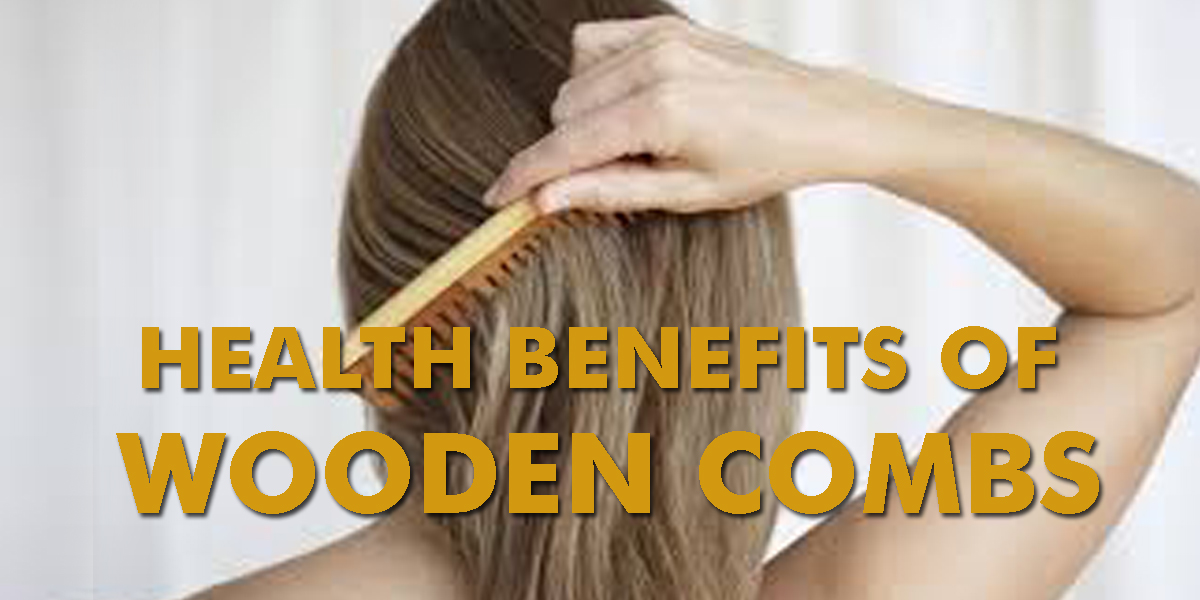The old woman’s wooden comb sat on the dusty dresser, its smooth teeth worn by years of use. Eshanya picked it up, feeling its weight and warmth, remembering how her grandmother’s strong hands had glided it through her silver hair each night. She never understood the ritual then, dismissing it as another relic of the past. But as she ran the comb through her tangled locks, she felt a spark of something—a connection to a pearl of wisdom she had long ignored and the dawning realization that sometimes, the most revolutionary ideas are the ones we’ve known all along.
In a world obsessed with high-tech gadgets and chemical-laden hair products, we’ve overlooked a simple, natural tool that’s been right under our noses (or, should I say, on our heads) for centuries.
The wooden comb.
It’s not just a relic from the past. It’s a game-changer in modern hair care.
Most of us don’t even realize it.
The Plastic Problem
The allure of cheap, colourful plastic combs has duped us. They’re everywhere—in our bathrooms, gym bags, and even our pockets. We’ve accepted them as the norm without questioning their impact on our hair and scalp health.
But here’s the truth. Plastic combs are junk food for your hair. They might get the job done, but at what cost?
The Wooden Wonder
Wooden comb. It’s not just a comb; it’s a revolution in hair care disguised as a simple grooming tool.
Think about it. When was the last time you gave serious thought to your comb? Probably never. But that’s about to change.
Wooden combs aren’t just tools; they’re an experience. They’re tactile, aromatic, and alive.
And they’re about to transform your hair care routine.
The Science Behind the Wood
Let’s get nerdy for a moment. Wooden combs, particularly those made from neem or bamboo, have some serious scientific backing.
1. Static-Free Zone
Unlike plastic combs, which create static electricity (hello, frizz!), wooden combs are natural insulators. They keep hair smooth and manageable.
2. Oil Distribution Wizards
The wood’s porous nature helps evenly distribute your scalp’s natural oils throughout your hair. It’s like a complimentary conditioning treatment every time you comb.
3. Scalp Stimulators
The rounded wooden teeth gently massage your scalp, promoting blood circulation. Better circulation means healthier hair follicles and potentially faster hair growth.
4. Hypoallergenic Heroes
Wooden combs are a godsend for those with sensitive scalps. They’re naturally antimicrobial and less likely to cause allergic reactions.
But Wait, There’s More!
The benefits of wooden combs go beyond just hair health.
1. Eco-Warriors
In an age of environmental consciousness, wooden combs are biodegradable champions. They’re the sustainable choice for your hair; the planet will be grateful to you.
2. Durability Dynamos
Quality wooden combs can last for years with proper care. They’re an investment in your hair’s future.
3. Stress Busters
There’s something inherently calming about using a wooden comb. It’s a mindful moment in your daily routine, a small act of self-care that can set the tone for your day.
The Wooden Comb Renaissance
The healthcare market is catching on. We’re seeing a resurgence of wooden combs but with modern twists.
1. Neem Combs
Neem wood combs, known for their antimicrobial properties, are gaining popularity for treating scalp conditions like dandruff.
2. Sandalwood Combs
Prized for their aromatic qualities, they offer a sensory experience while detangling.
3. Green Tea-Infused Bamboo Combs
These combs, which combine bamboo’s strength with green tea’s antioxidant properties, are the latest innovations in natural hair care.
4. Herb-Infused Wooden Combs
Some manufacturers are experimenting with infusing wooden combs with herbs like rosemary or lavender for added hair benefits.
The Doctor’s Take
As a doctor, I’m always sceptical of miracle cures and quick fixes. But the wooden comb isn’t trying to be either of those things. It’s a return to basics, a rediscovery of what nature has provided us.
The gentle scalp stimulation, the even distribution of natural oils, and the reduction in static electricity are all scientifically sound benefits. While more research is needed to quantify these effects, the anecdotal evidence is compelling.
Moreover, the stress-reducing aspect of using a wooden comb should be noticed. In our high-stress world, any tool that encourages mindfulness and self-care is valuable from a holistic health perspective.
Making the Switch
Are you convinced to give wooden combs a try? Here’s how to make the transition.
1. Start Slowly
First, you can use your wooden comb alongside your regular comb. Please take a look at the differences.
2. Choose Wisely
Opt for a comb made from sustainably sourced wood. Look for smooth, rounded teeth to protect your scalp.
3. Care for Your Comb
Clean your wooden comb regularly with mild soap and water. Oil it occasionally to maintain its lustre and effectiveness.
4. Be Patient
Your hair and scalp might need a few weeks to adjust. Please be sure to stick with it.
The Wooden Comb Challenge
Here’s a challenge: Use only a wooden comb for 30 days. Keep a journal of changes in your hair and scalp health. You might be surprised by the results.
The wooden comb revolution isn’t just about hair care; it’s a movement back to nature, basics, and what works. Join the revolution for health, sustainability, and mindfulness.

